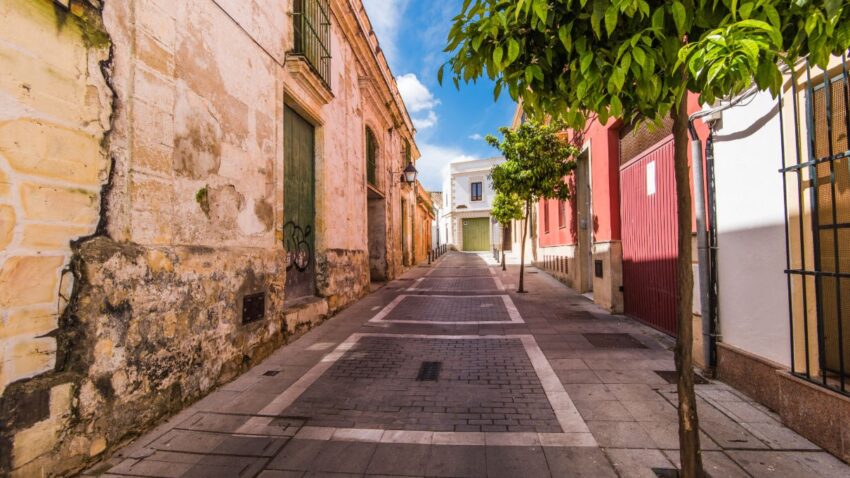Why Spain?

I arrived in Spain in the fall of 2007 with the aim of staying for a year, maybe two at the most. Some eighteen years later, I’m still here. That has a lot to do with Concha, the Spanish woman I fell in love with and later married, but it also has to do with the Spanish way of life, which I have found immensely agreeable. It’s a way of life that recalls an earlier time back in my native Charleston, when locals walked to the pharmacy, the market, or the bar. A time when there was a cobbler, a florist, and a baker just around the corner. A time when food and family—and especially food with family—took priority over all else.
For me, the most telling difference between my former life in the States and my current life in Andalusia is the fact that over here, I don’t need my own car. Because Concha and I both walk to work—and most everywhere else, for that matter—one set of wheels is enough for the two of us. We only really need it for weekend excursions to the mountains or the beach, both just a short drive away. For longer haul trips to, say, Madrid, Pamplona, or San Sebastian, we like to take the high-speed trains, which are clean, comfortable, and reliable. The train station, too, is just a short walk from our flat here in Jerez. Almost everything is: On foot, it’s about three minutes to work, four minutes to the bar or the market, two minutes to the pharmacy. Although it does take a bit longer to walk to my mother-in-law’s place, she and I are both okay with that. Concha’s mom and I get along splendidly; we’re big fans of each other; but we don’t need to see each other every day. A half-hour walk is ideal: easily doable, but hardly obligatory. It’s just what the doctor ordered after a big family feast on Sunday.
My salary as a part-time English teacher wouldn’t go very far in the States, but here, it is enough. When I walk up to the frutería, our neighborhood greengrocer, I come back with armloads of mostly local produce for the same price I’d pay for a few shiny-but-tasteless apples from a big grocery chain. It’s true that our frutería, like most local shops, is closed on Sundays and during siesta, but in a way I appreciate that. To me it’s just further proof that when it comes to choosing between working to live and living to work, my adopted home sits squarely in the working-to-live camp. One has to work, of course, but at the end of the day, the point of life is, well, to live it. Spain knows this, and if ever I start to forget it, Spain is quick to remind me.
Living in Spain may not be for everybody, but visiting Spain definitely is—now more than ever. In the months to come I look forward to telling you more about life in Spain, in the hopes that you might consider booking a trip with Fernweh Travel. The same qualities that make Spain such an agreeable place to live, make it a truly remarkable place to visit. Just bring your appetite and some walking shoes. We’ll do the rest.
Till then,
Charlie
Raised in Charleston, SC, Charlie Geer currently lives in Andalusia, Spain. His work has appeared in various journals and magazines, including the Threepenny Review, The Sun Magazine, Tin House, the Southern Review, Garden and Gun, and McSweeney’s Internet Tendency. His novel Outbound: The Curious Secession of Latter-Day Charleston was published by River City Publishing in 2005, and his collection of essays in Spanish, ¿Qué Dices, Teacher?, was published by Plan B in 2020. Follow him online at www.charliegeer.com and @amerizano.
